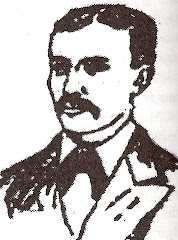It is true that, whether he is labeling a museum exhibit or writing a biography, the historian that lets himself be carried away by the hope that he is describing a "first", "oldest," "largest," or whatever, may be in for some embarassment. But there is nothing especially ethical about a desire to avoid embarassment; even burglars take care to avoid discovery. Embarassment is not the penalty to be feared. The historian who knowingly lets the truth be covered up or stretched out of shape may never be contradicted. His authority may be accepted in good faith. Those who doubt him may shrug their shoulders and say nothing, not wishing to upset him with inconvenient facts or arguments. The ethics of the historian are important precisely because he can so often expoect his sins to go unexposed. This is even truer of the local historian than of the professional academic. 1
1Felt, Thomas E. Researching, Writing and Publishing Local HistoryNashville: American Association of State and Local History, 1981. ISBN-0-910050-53-8




No comments:
Post a Comment